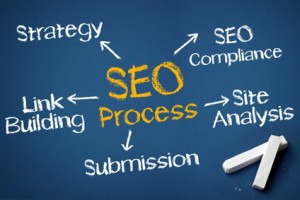
One of the less-talked-about aspects of SEO involves restricted data. Since SEO is all about making text more visible, more searchable, and more friendly in terms of web crawling and scoring of value from a search engine perspective, what does it mean to your efforts if you have to restrict access to content along the way?
In other words, if you mess with things like restricted access for users, tabbed content, avoiding indexing certain file structures, using nofollow tags, and working with text-crawling schedules, how is it going to affect your bottom line? Consider each of them to come up with some conclusions on your own.
User Access Control
If you run a blog or any sort of a site where people have to log on, then there may be times when you have to set user permissions and restrict access to certain files or sections of your site. There’s a pretty big question as to how that’s going to affect your overall SEO score. If there are user restrictions to content , does that mean that Google doesn’t consider it valuable in terms of search viability? There doesn’t seem to be a clear answer for that publicly, but you can assume that whenever possible, try to leave open as much of your text as possible for the best possible site ranking.
Tabbed Content
Using tabbed content in your website serves a bunch of purposes. It makes site aesthetics way easier to handle, it vastly improves the user experience, and as far as mobile viewing, it makes some sites even accessible at all because you don’t have to do so much scrolling. However, because all the text isn’t immediately visible, there are some indications that you SEO score can be affected. You aren’t penalized, per se, by Google, but the text that is in the tabbed content may be considered of less value, simply because of initial visibility.
Folder Indexing
When you set up your site, you can tell Google which folders to index for its analytical purposes. There are pros and cons to having it index various folders, and choosing to make some folders public or private also can make a difference to your SEO score. Choosing to not index an images folder will create certain results, and choosing not to index a folder that houses your WordPress plugin files will create other ones. The best practice, in this case, is highly dependent on individual circumstances.
Nofollow Tags
Inside of your content itself, there are two major kinds of hyperlinks, ones that follow and ones that don’t. Your SEO can be affected positively or negatively depending on the quality of site you’re linking to. Which means you can restrict the following behavior of a Google crawler in order to prevent giving yourself a bad linking score.
Text-crawling Schedules
There are options in your web setup that allow you to suggest to Google how often to scan your site so that new content can be indexed. By restriction or easing restrictions on this schedule, you can figure out the optimal way to create an automatic value in your posts.
Originally posted on October 10, 2016 @ 3:11 pm